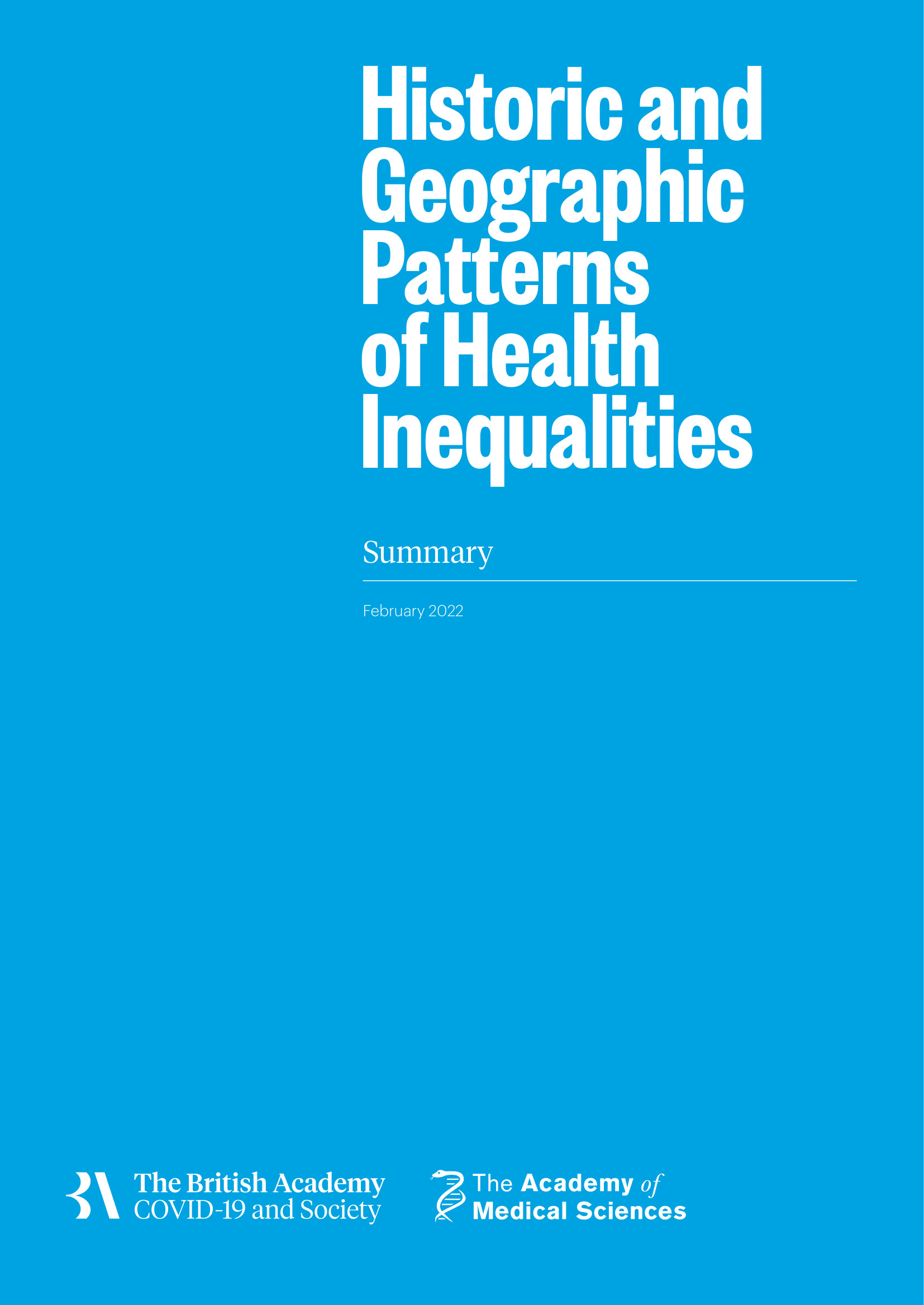
09.30, Wednesday 10 November 2021
On Wednesday 10 November 2021 the Academy of Medical Sciences and the British Academy hosted a joint virtual roundtable on ‘geographic and historic patterns of health inequalities’.
The COVID-19 pandemic has both exposed and exacerbated inequalities within our society, with certain demographic groups and people living in specific geographic regions being disproportionately affected by the direct and indirect impacts of the disease. Health and wellbeing, local economic risk and resilience, poverty and deprivation, and response planning all have an important place-related dimension that has shaped the impact of the crisis.
Understanding how the mortality rates of COVID-19 map against geographical location, physical infrastructure and social conditions, and to what extent these trends are long-standing or newly surfaced by the pandemic, will allow for better understanding of the different priorities that are needed in different places.
This 3-hour virtual meeting convened experts in public health, the humanities and social sciences to discuss the following questions:
- To what extent are the geographic spread of COVID-19 infection and mortality rates distinguishable from place-based health outcomes over the past 200 years?
- What are the causes and consequences of these patterns?
- Where are the evidence gaps, and what needs to change in order to reduce inequalities in health?
The meeting was co-chaired by Professor Dominic Abrams FBA, Professor of Social Psychology at the University of Kent and Professor Dame Theresa Marteau DBE FMedSci, Director of Behaviour and Health Research Unit at the University of Cambridge.
The roundtable report and a short lay summary are available to download on the right-hand side of the page. The report summarises the discussions from the workshop under five themes:
1. The value of an historical perspective
2. Looking beyond the pandemic
3. Co-production in research is essential
4. Data must be more flexible and agile
5. Addressing inequalities

